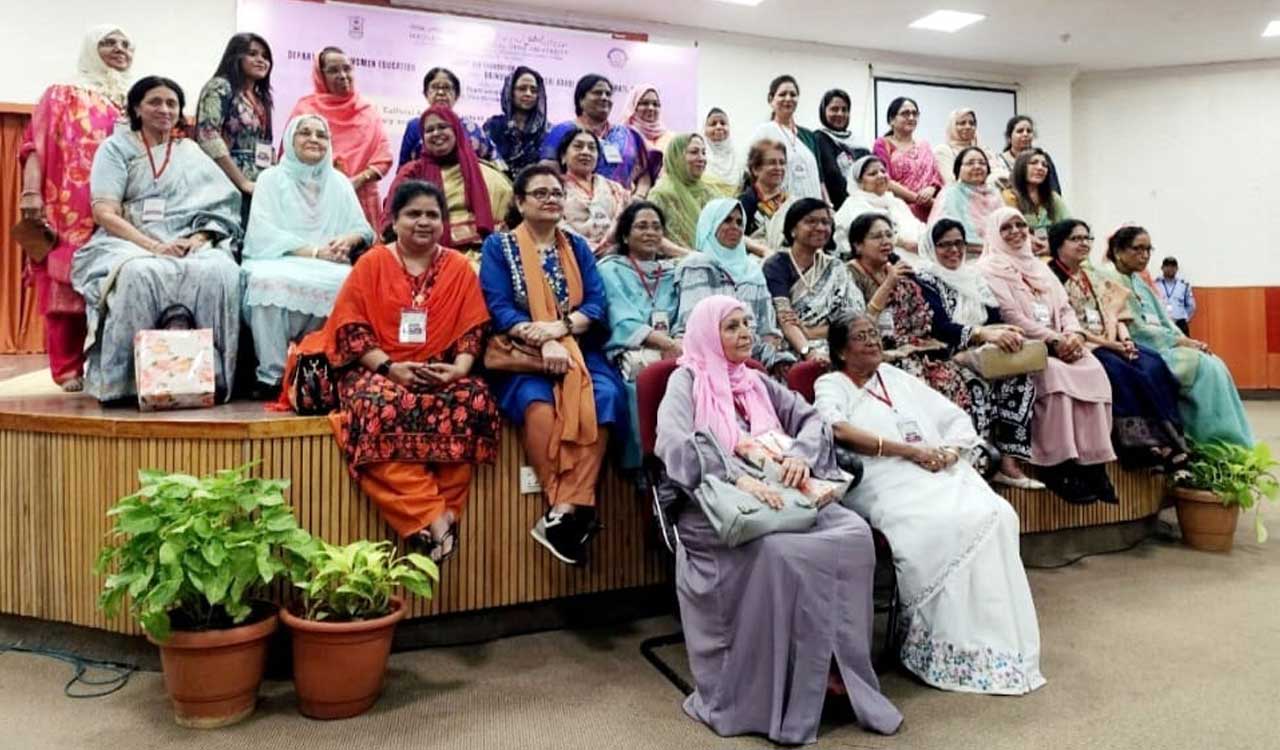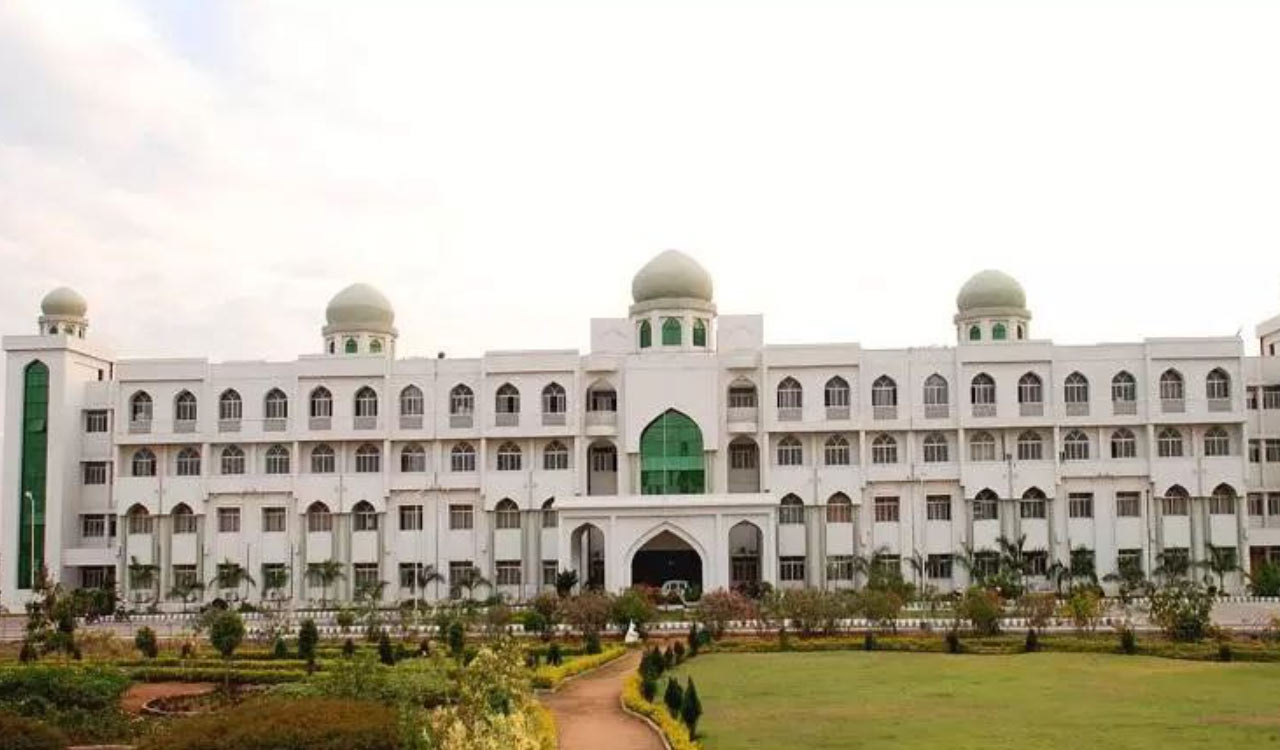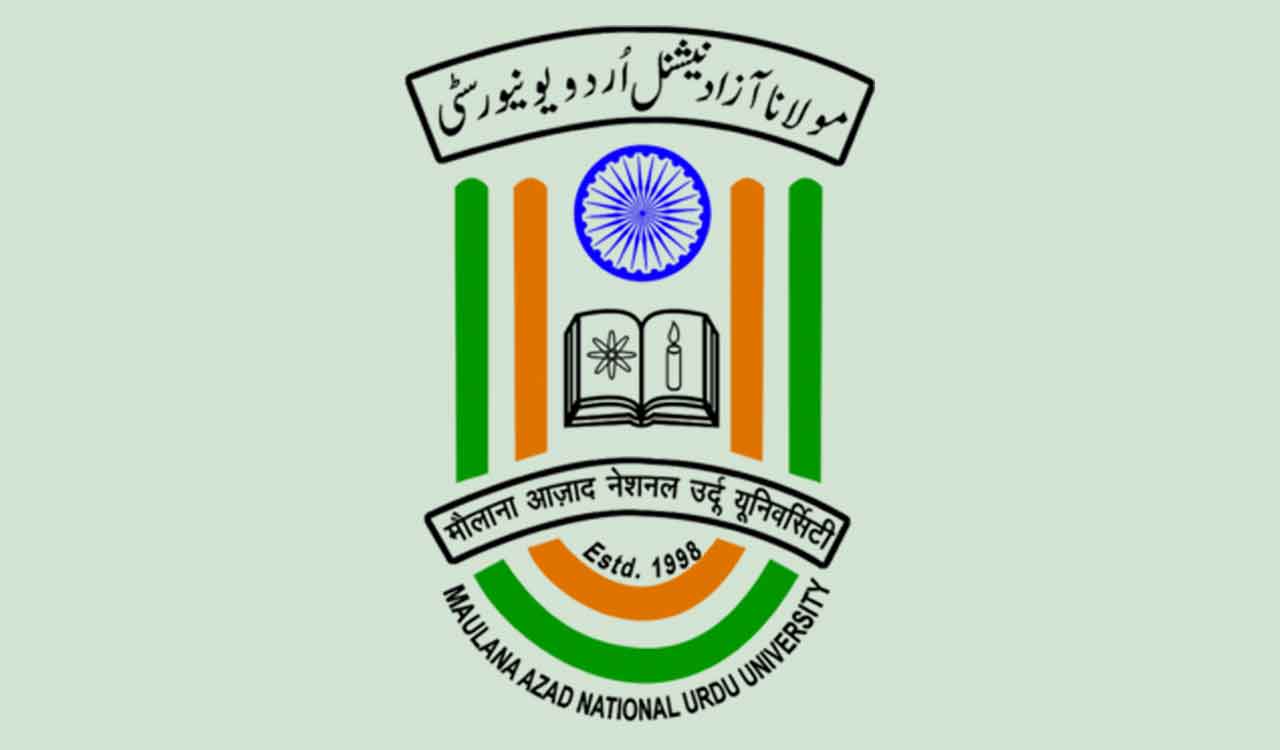From WhatsApp to a national movement: BANAT champions women’s voices in Urdu literature
Initially, the idea seemed uncertain, with slow responses, but, as more writers joined, the group found its purpose and began to thrive, especially by allowing experienced writers to guide and mentor emerging talents

Hyderabad: The story of BANAT (Bainul Aqwami Nisai Adabi Tanzeem) is a remarkable journey from a simple WhatsApp group to a significant national literary organization.
What began as a modest attempt by a few women writers in October 2017 to connect like-minded female Urdu writers has grown into a vibrant platform, providing women across India a space to share, critique, and elevate each other’s work developed into a meaningful space.
However, Initially, the idea seemed uncertain, with slow responses, but, as more writers joined, the group found its purpose and began to thrive, especially by allowing experienced writers to guide and mentor emerging talents.
BANAT’s journey has been one of resilience and defying expectations. Many skeptics believed the group wouldn’t last, dismissing it as a platform for idle chatter rather than meaningful literary work.
Yet, BANAT, under the leadership of Dr. Nigar Azeem and Azra Naqvi, has proven them wrong. “We have not just survived but grown into a strong network of women writers,” remarked Dr. Azeem, BANAT’s president.
Today BANAT has emerged as a formal institution with a mission to promote and support women writers in Urdu literature. The two day conference recently organized by it in Hyderabad to mark its 8th Foundation Day drew over 70 writers from 18 states. This is touted as the biggest gathering of women writers in recent times.
The conference offered an opportunity to exchange ideas on how social, cultural, and gender-related issues are evolving in the 21st century, especially as seen through the lens of Urdu literature.
The discussions highlighted the importance of women’s voices in understanding these complex landscapes and reiterated the organization’s commitment to fostering solidarity and growth among female writers.
The transformation of BANAT reflects not only the dedication of its founders and members but also the resilience and strength of women writers striving for recognition and representation in Urdu literature.The recent event stands as a testament to BANAT’s success.
The event was attended by distinguished figures in Urdu literature, including Prof. Ashraf Rafi, Qamar Jamali, Azra Naqvi, Prof. Ameena Tahseen, Dr. Afshan Malik, Dr. Naima Jafari Pasha, Tasneem Kausar, Prof. Sarwat Khan, Prof. Aslam Jamshedpuri, Rafia Nausheen and Dr. Humaira Sayeed.
The release of nine books of fiction during the conference underscored BANAT’s commitment to elevating women’s voices in Urdu literature.
The event also drew Urdu enthusiasts, academics, and educators, an indication of the growing recognition and respect for BANAT’s efforts to create a supportive community for women writers across the country.
Through its dedication to meaningful literary discourse and mentorship, BANAT continues to shape the landscape of Urdu literature, inspiring countless women to express their perspectives and experiences.
At the recent BANAT conference, a powerful call to action resonated through the gathering, urging women writers not to succumb to societal pressures but express their ideas with courage and conviction.
Several speakers, including Prof. Syed Ainul Hasan, Vice Chancellor, Maulana Azad National Urdu University (MANUU), emphasized the role of literature as a mirror reflecting social realities.
They hoped the women writers would shine a light on prejudices, inequalities, and injustices that persist in society.
Seniors like Qamar Jamili and others underscored the responsibility of women writers to confront stereotypes, question outdated norms, and voice the unspoken struggles and aspirations of women.
This rallying cry was not only about the freedom to write but about inspiring change through words, fostering a literary landscape where women’s perspectives and lived experiences are seen and valued.
Recharged and emboldened, the BANAT members departed with the collective commitment to empower women writers to wield their pens as tools of insight and transformation.
Related News
-
Centre allocates Rs. 6,000 crore for higher education textbooks in Indian languages including Urdu
-
Labour minister draws flak for campaigning, distributing cash
-
MANUU students launch indefinite strike over delayed union elections
-
Shaheen Association organises National Girl Child Day event in Hyderabad
-
Modi, Macron vow deeper defence, trade partnership
1 hour ago -
Sports briefs: Dharani, Tapasya clinch honours
1 hour ago -
Man arrested for cultivating ganja plants in Telangana’s Adilabad
1 hour ago -
Second successive win for Titans in Samuel Vasanth Kumar basketball
1 hour ago -
Women councillors allege misconduct by Congress in Kyathanpalli
1 hour ago -
Gauhati Medical College doctor lodges FIR alleging harassment by principal
2 hours ago -
Two FIRs filed in Chikkamagaluru after week-long stone pelting on house
2 hours ago -
Viral video shows SUV hitting biker in Dwarka, teenage driver detained
2 hours ago




